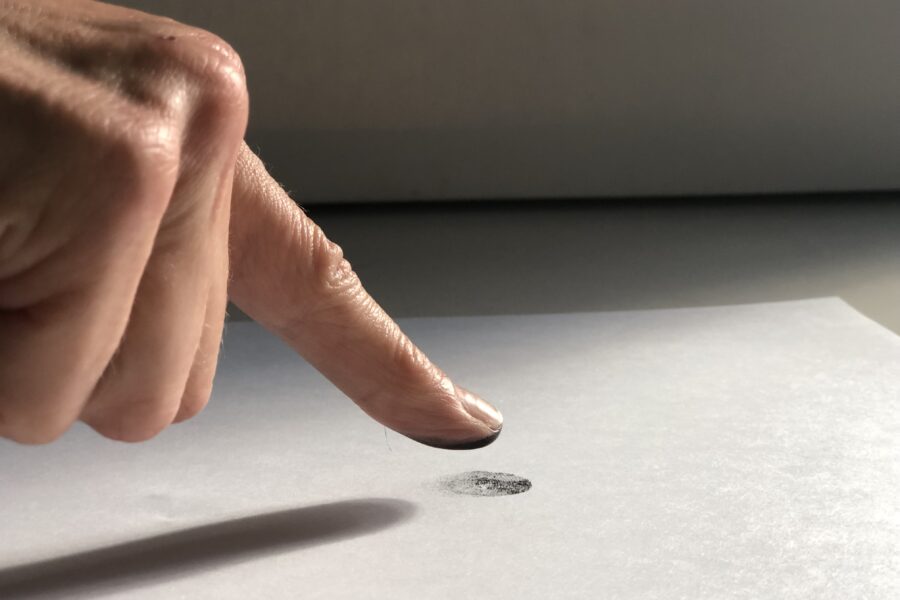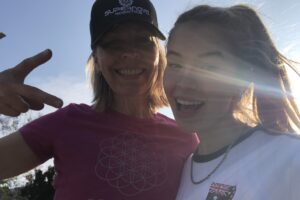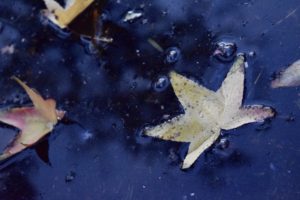I was talking to someone the other day. Someone I love. Someone with whom I have great conversations. In the midst of one of them, they shared with me, quite casually, that over the past year, not one, but three individuals confided in them that they identify as Tolkien elves. By Tolkien, I mean J.R.R. (aka John Ronald Reuel), the Oxford scholar and author of The Lord of the Rings trilogy. If you don’t know the series, they’ve sold a couple hundred million copies worldwide and sit on many top ten lists of the most popular books ever. They are that famous. Still, what I know about Tolkien is virtually nothing. I’ve never read his books. My entire experience of his work is limited to Peter Jackson’s film adaptations, which I reluctantly sat through with my son a few years ago during one of our movie marathons. No offense to all the admirers out there (including the men in my family), but even after 11 hours of Middle-earth drama, I couldn’t connect with the dwarves, and orcs, and magicians, and those hobbits with their big hairy feet. Forget the epic symbolism and metaphor going on, my only takeaway was Gollum’s “my precious,” which nagged in my brain for about a month. So when my friend said Tolkien elf, I immediately thought Fanboy. Someone who puts on pointy ears, hangs out at Comic-Con, and insists on speaking the Elven language Quenya. I didn’t even think to ask for an explanation before jumping to a conclusion. Which, for the record, was totally wrong.
Identifying as a Tolkien elf means, in simplistic terms, that you better relate to the Elven objective to preserve and defend nature than the human inclination to eradicate and destroy. That you subscribe to the belief that nature possesses consciousness and spirit, as well as the conviction that its exploitation must be stopped. Tolkien elves consider it their duty to protect the natural world from the bad guys who–here on regular earth–are us. Because even the best humans are guilty of abusing the planet for the sake of convenience or pleasure or gain. Choosing to replace rather than repair; consume rather than conserve; to ignore the stress we inflict rather than clean up our gross, colossal mess. When you think about what supreme asses we are (and if you’ve used a single-use plastic container this past week that includes you), who wouldn’t want to identify with the elves? They are of the highest and most noble order.
But this isn’t a musing about environmentalism or even the trilogy itself. What I can’t get over is the strength and certainty required to claim yourself a Tolkien elf. I mean, that takes self-knowledge. That takes confidence. Me? I can’t even fill out the profile on my Instagram account. You know, the section where people list their credentials or write quippy phrases to self-describe, like “Owning my Second Act” or “Lover of Tea Parties” or “Looking for a Cowboy” (dang, I love that last one). I have managed to avoid calling myself anything for most of my life. Terrified to paint myself into a box, worried that I might change my mind tomorrow or, worse, overstate a claim and cause someone to challenge my declaration. “You call yourself a writer? Prove it.”
I was never a kid who stood up and said, “I am _____.” Sure, I may have threatened, “I am going to punch you in the face if you don’t stop making fun of my mom,” but I never proclaimed myself to be anything. I left home young because I didn’t identify with my parents’ beliefs. Ended many successful pursuits before a label could get pinned to my lapel. And lived in the United States of America for 29 years before becoming a citizen, free-floating through life without having to delineate or participate, happy to sail past the canvassers at Trader Joe’s, year-after-year, with a sorry-I-can’t-vote shrug. Even the title “mother” makes me squirm, because at times I am genuinely apathetic towards the role, convinced the designation better deserved by all the super-moms out there. And, yes, they do exist, because I happen to know a few.
In truth, I probably suffer from Imposter Syndrome. Which isn’t that uncommon for folks like me born to first-generation parents. Growing up in a home that looked and sounded so different, I took great pains to disappear into crowds that I never felt a part of. Belonging just wasn’t a childhood theme. But survival was. It defined my parents’ lives and, I suppose, surreptitiously, mine, too. When you think about it, you really can’t mess up being a survivor or an outlier or an underdog. Nobody is going to scrutinize your efforts. Everything is a job well done. Honestly, if you want a relatively risk-free passage through life, I highly recommend this route.
Except that after five decades, it gets mother-freaking tiring. That game of playing it safe, of caring too much about what other people think, of hiding your light under a bushel. We used to sing that song in Sunday school, “Hide it under a bushel? No! I’m gonna let it shine.” I always thought the lyrics were talking about hiding your religion or Christian-ness from the world, but now I realize that light means your essence or truth or–if you’re willing to go there–that part of you that is God. To stand up and shine that light, fly that freak flag, share that authenticity with others…well, that takes storybook bravery. Because humans are not only asses to Mother Nature, but to each other as well. All too quick to judge, minimize, and discard. Like I did, when I dismissed those elves as being nothing more than comic book groupies.
The thing is you have to know yourself before you can say, This is who I am. Which can take a minute, or 52-plus years, or a couple of lifetimes (insert winky emoji). Maybe labels help us get there; maybe they hold us back. I’m not sure. But I do know that when someone stands up and expresses their truth, someone else instinctively follows. And perhaps one day when all of us find the courage to do that–to share our light–that’s when we stop being asses altogether.







